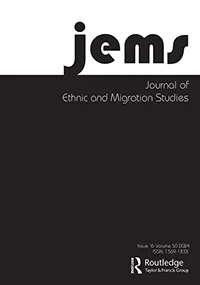During the 20th century, European nation-states underwent a significant transformation, shifting from traditional Rechtsstaat to democratic welfare states and eventually to EU member states. This evolution expanded government powers, consolidated civil and political rights, and introduced new social rights. By the mid-20th century, this dual expansion crossed national borders, giving rise to the European Union. Recent political studies have examined the EU’s role in reshaping the European state system but have often overlooked Max Weber’s insights. This article revisits Weber to explore the dynamic relationship between national welfare statehood and EU membership. It argues that European integration rationalizes the political sphere to enhance stability, legitimacy, and effectiveness. However, with time and particularly after the Economic and Monetary Union (EMU), integration has become excessively formalized, risking the principles of welfare statehood and nation-based democracy.
Migration, Diversity and Development Policies
Institutional discrimination and local chauvinism. The combative role…
Ambrosini, M., Molli, S. D., & Cacciapaglia, M. (2024). Institutional discrimination and local chauvinism. The…


![[EPRA Policy Brief] – Economic Insecurity and Anti-Immigrant Sentiments](https://www.eprahub.com/wp-content/uploads/2023/12/logo-blue.png)

